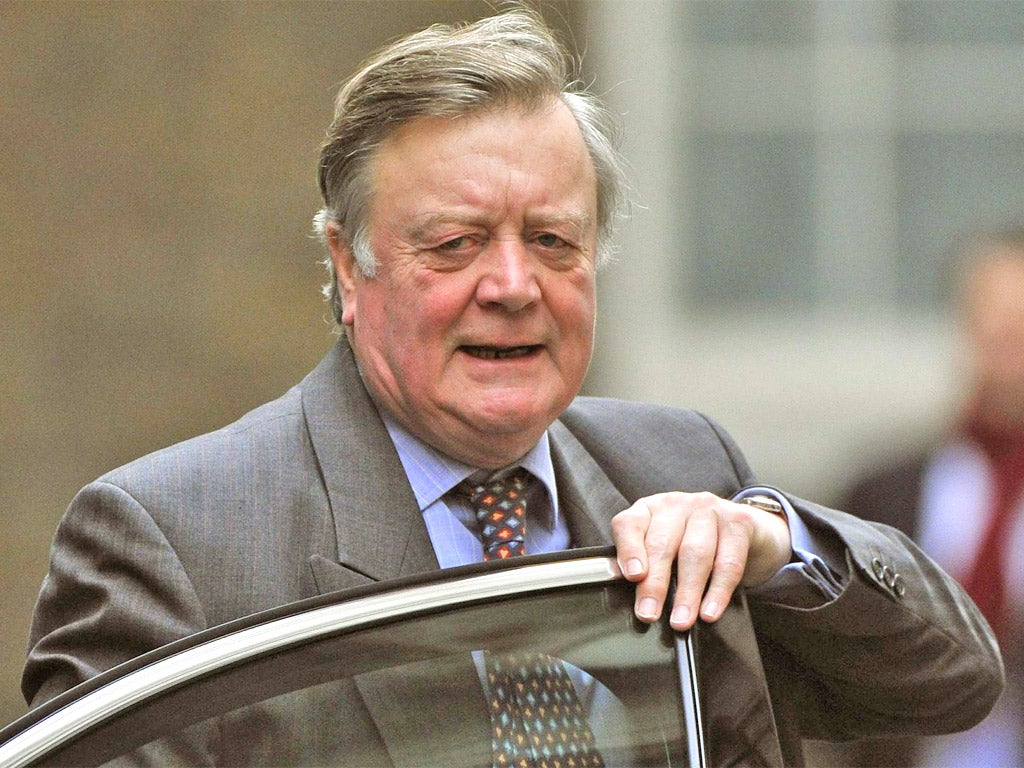Secret courts plan under attack despite Tory concessions
Civil rights groups warn that revised Bill would still throw a 'cloak of secrecy' over trial proceedings

Your support helps us to tell the story
Our mission is to deliver unbiased, fact-based reporting that holds power to account and exposes the truth.
Whether $5 or $50, every contribution counts.
Support us to deliver journalism without an agenda.

Louise Thomas
Editor
Moves to allow some courts to sit behind closed doors to hear evidence from spies will "throw a cloak of secrecy" over the country's judicial system, human-rights campaigners warned yesterday.
The Government's original plans for a major extension of "secret courts" in civil proceedings have been substantially scaled back in the face of protests from lawyers and MPs of all parties.
But the Justice and Security Bill, which was finally published after wrangling within the Coalition, still faces widespread criticism for undermining fundamental British principles of open justice.
Critics also warned that the revised proposals could still prevent the public from learning about allegations of complicity in rendition by the intelligence services.
Courts will still be able to hear evidence in secret, known as closed material proceedings, but only when national security was the justification. Inquests have been removed from the plans and judges, not ministers, will have the power to order the secret sessions.
The Government said the power is essential to allow it to defend itself against vexatious civil court cases and to reassure foreign countries – specifically the United States – that sensitive material can be safely shared with Britain.
Kenneth Clarke, the Justice Secretary, said the measures were "less than perfect – but at the moment the alternative is silence".
But Lord Macdonald, a former director of public prosecutions, warned that the legislation had been improved but was still flawed. He told the BBC Radio 4: "Some government wrongdoing in the area of national security is going to be less likely to see the light of day. So I think the Bill still contains much which is offensive to our traditional notions of equal parties adjudicating cases in front of an impartial judge."
Alice Wyss, of Amnesty International, said: "We still need to carefully examine the details of the Bill. But our concerns still stand: that the Bill will allow the Government to throw a cloak of secrecy over wrongdoing including the alleged involvement by UK officials in rendition, secret detention and torture."
Shami Chakrabarti, the director of Liberty, said: "This Bill would end equal open civil justice, putting ministers and securocrats above the law."
She said under the proposals judges would still be required to comply with ministers' requests for secrecy.
Launching the Bill, Mr Clarke said the plans had been improved following consultation. "Protecting the public cannot come at the expense of our historic freedoms," he said. "That principle is absolutely right and has guided the Government's response. Civil claims of mistreatment or complicity in torture brought against British agents which cannot currently be heard in our courts can... be heard.
"[The Bill] will stop the taxpayer being forced to pay out compensation even where a case has no merit and will ensure that the public receives an independent judgment either way on serious allegations which have been laid against the Government."
But Sadiq Khan, the shadow Justice Secretary, said: "Our job, now the Bill is published, is to go through it with a fine-tooth comb and work out whether the Government has listened to concerns or whether it has simply pushed ahead regardless."
Clarke brands Tory Eurosceptics 'extremists'
Supporters of a referendum on Britain's membership of the European Union – including scores of Conservative MPs – were dismissed by Kenneth Clarke yesterday as a "few extreme nationalist politicians".
In comments certain to antagonise the Tory right, the Justice Secretary insisted there was little public appetite for a vote on whether to pull out of the EU.
Although he acknowledged the nation was a "bit eurosceptic", he said it was ridiculous to believe there was a public clamour for a referendum. He added: "It is the demand of a few right-wing journalists and a few extreme nationalist politicians."
Mr Clarke, regarded as the most pro-European Tory member of the Government, said a referendum would create "absolute confusion" and undermine efforts to retain the confidence of the markets in the British economy.
"It would settle nothing. Particularly it would settle nothing with the more frenzied eurosceptics who keep believing European bogies are under the bed," he told BBC Radio 4. More than 70 MPs of all parties have joined the People's Pledge campaign, which is calling for a referendum.
Nigel Morris
Subscribe to Independent Premium to bookmark this article
Want to bookmark your favourite articles and stories to read or reference later? Start your Independent Premium subscription today.
Join our commenting forum
Join thought-provoking conversations, follow other Independent readers and see their replies
Comments